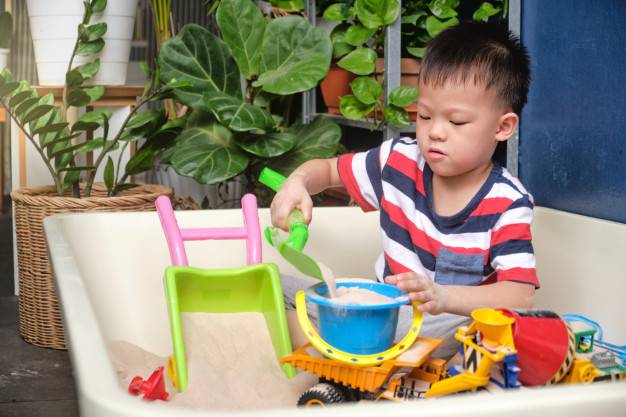Autism and Sensory Issues
Autism is a neurological and developmental disorder that primarily hinders a child’s ability to communicate, learn and behave socially. Because of its wide range of symptoms the word “spectrum” has been added to it. Autism may also be associated with other disorders like ADHD, conduct disorder, dyslexia, learning disabilities, and neurosensory problems. In this article, we are going to discuss autism and sensory issues in Autistic persons.
Our senses help us to see, feel, touch, smell, and be aware of our surroundings and accordingly react but in autistic persons how these sense organs receive signals and how the brain receives these stimuli and interpret may be different. It is not uncommon for parents of autistic children to complain to doctor that “My child always wants to hold something in his hand”, “My child doesn’t keep his feet on the floor, he walks on his tips”, “My child does not like to eat food which is very soft”, “My child is oversensitive to sound, I have to make him put on an ear muffler to reduce sounds when taking him out “and many more such complaints, which are labeled as Sensory issues or Sensory processing disorder. Please note that all Autistic children may not have sensory issues, similarly not all children having these issues are autistic.

Symptoms: As the name is suggesting sensory processing disorder is a condition in which the way we perceive the environment and react to it is deviant from normal. In this condition, one or more senses can be affected. For example, a person may be oversensitive to sound and at the same time may also have texture sensitivity. Sensory processing is required to make us aware of our surroundings. It helps us to maintain our balance, see, smell, taste, feel, have coordinated movements, and react as per the stimulus received. Those suffering from sensory issues may overreact or underreact to a stimulus. Some do not react even when injured seriously like deep cuts, falling on hard surfaces, having high pain withstanding threshold; while some react violently to even a slight touch.
Some of the common hyper-reactive sensory issues are:
- Not wanting to put on clothes as they are sensitive to touch of cloth
- Photophobia, unable to see bright lights
- Unable to bear normal household sounds like the mixer, vacuum cleaner sounds
- Having poor muscular coordination making their movements clumsy and awkward
- Fixated to a particular food texture, any other food makes them puke or gag
- Unable to bear swinging motion
- Unable to hold pen/pencil/scissors properly
- Having hypotonia of few muscle groups, thereby having problems in
And some of the common under reactive sensory issues (they keep looking out for stimulus) are:
- Poor sitting tolerance, unable to sit still, they keep on fidgeting or moving here and there
- Jumping, spinning, swaying type activities
- Mouthing—keeping things in the mouth like a shirt collar, fingers, pencils
- Engrossed or completely enamored by screen watching
- Having sleeping troubles
- Having good pain tolerance. May not react to injuries unless it is very severe
Autism and Sensory Issues. Why it occurs?
Like many other behavioral disorders, the exact cause for developing sensory processing disorder is not known though commonly it is believed to be genetic. As it is commonly associated with other behavioral disorders like Autism, ADHD the causes associated with it may also have some bearing on it. As we are all aware our sensory organs receive signals from the environment, for example, when we see some object our sensory receptors in the eyes, receive this information and send the information to the brain which processes that information and makes us act appropriately. But in those suffering from sensory processing disorder the way the person perceives and processes the stimulus is deviant.
How do you diagnose?
There are no diagnostic tools to diagnose Sensory processing disorder. It is only diagnosed by observing the child and detailed interview of the parents.
Homeopathy Treatment
For Sensory processing disorder, the commonly recommended solution is therapies like Sensory integration therapy or occupational therapy. In some cases, sensory tools may be needed. Sensory issues cannot be overcome suddenly, it needs handling them with loads of patience.

Therapies do help to some extent but the cause for the disorder remains untreated. Many times as one sensory issue is solved the child may develop another sensory issue. For example, a child who walks on his toes may overcome it but develops a habit of having to hold something in his hand constantly. Homeopathy treatment takes each person individually, investigates the most probable cause for the disorder by diligently going through the parental health history, pregnancy history, past medical history, personal likes, dislikes, sleep patterns, appetite, perspiration, bowels, and other physical generals. After a thorough case analysis at Dr. A M Reddy Autism Centre, the appropriate Similimum is selected which acts by correcting the neurological imbalances and strengthening the immune system thereby reducing the sensory issues.
